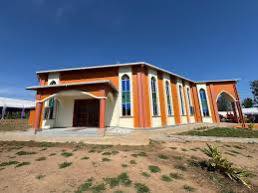By Denis Jjuuko
In many of Kampala’s restaurants and hotels the other week, you could not fail to notice some happy people enjoying meals, taking photos and celebrating their achievements. The older people in the groups seemed happier. They had done their job. Their children had finally made it having graduated from Makerere University, the country’s premier higher institution of learning. It is one of the happiest moments for the majority of Ugandan parents having paid tuition fees and such other things for at least 20 years.
Graduation also marks a passage to adulthood. From dependency to parents and guardians to becoming a benefactor to sometimes the parents themselves or even the siblings of the person who has graduated. Usually, the parents and aunties start even asking whether you found somebody at university. Grandchildren are now on their minds.
In that moment, nobody realizes that the country, according to some reports, creates only a few thousand jobs a year. Makerere alone sees more than 12,000 students graduate annually.
In the early years of Uganda’s independence, graduation meant a good job that came with a house in “staff quarters” or “Kizungu”, ability to buy a car and pencil your name in the annals of Uganda’s middle or even upper class.
It is a bit different this time. Jobs of whatever nature are really scarce to find yet our university education focuses largely on what people call white collar jobs — the kind of jobs where people wear nice suits, sit in swivel chairs and work on a computer and call it a day at 5.00pm.
Formal education creates these expectations which have come to be a bit unrealistic. That is why thousands of people apply for a single job in Uganda. There is a mismatch between education and the job market. There is a need for these two to talk to each other so that we educate people who can find the jobs that could be created today.
There of course will always be formal jobs because some people will retire but we are also a very young country, which means we will see more people staying on jobs longer than ever especially those who adapt to emerging technologies. Artificial intelligence will continue to disrupt the workforce leading to redundancy like we have seen with tech behemoths in America laying off people. The beauty with technology though is that other jobs will be created. Those who will survive will be those who can adapt to new ways of working.
As Makerere was carrying out its week-long graduation ceremony, Facebook was celebrating 20 years of its founding. In a post by Mark Zuckerberg, the Facebook (now under Meta) CEO and founder, to celebrate the occasion, talked about artificial intelligence and the metaverse and the role they will play in future. He said his platforms (WhatsApp, Instagram, Messenger and Facebook) are used by more than three billion people at least once a day.
What that means is that today’s graduate is most likely going to use these platforms to do their job. Of course, we can argue that you don’t need a degree to learn to use these platforms but how can we take advantage of them? They offer great marketing possibilities at almost no cost. Many young people are today earning money as influencers and content creators. Small and Medium Enterprises (SMEs) without large marketing budgets are taking advantage of these platforms. It is a shame that Facebook is banned in Uganda. It is a business enabler.
Many business owners in the informal sector don’t know how to fully use these platforms for business purposes and university graduates could utilize them and support these SMEs. Large companies are already doing this, which means small businesses should do so too. Such graduates who take advantage of this must continue learning as the technology evolves. If they thought learning has ended with their degrees, they would be deceiving themselves.
Even though we love talking about technology and the possibilities, we should never forget that a lot of work and opportunities are in jobs some people refer to as dirty. Jobs where you use your hands to work in sometimes places that may not have swivel chairs and air conditioning.
For example, in many areas, there are lots of residential buildings coming up. Just outside my office, a building with perhaps 100 condominium apartments has just opened up. Lots of people have moved in since the beginning of the year. At least for now, artificial intelligence won’t clean it or do errands for the occupants. Yet imagine if one did errands for about 30% of the apartments every week, they would be able to earn a decent income. Or they need is being efficient and professional and use tech platforms to get ahead.
The writer is a communication and visibility consultant. djjuuko@gmail.com









